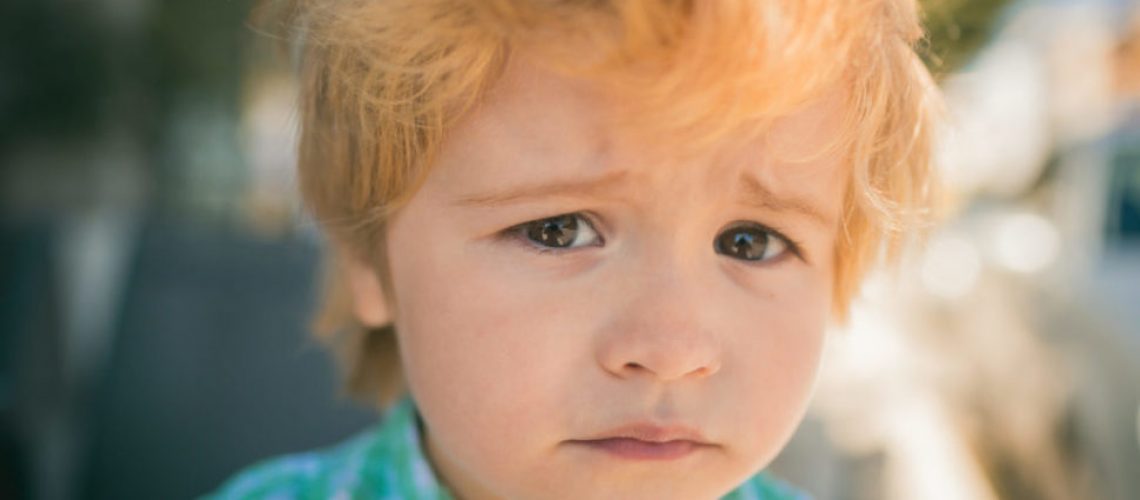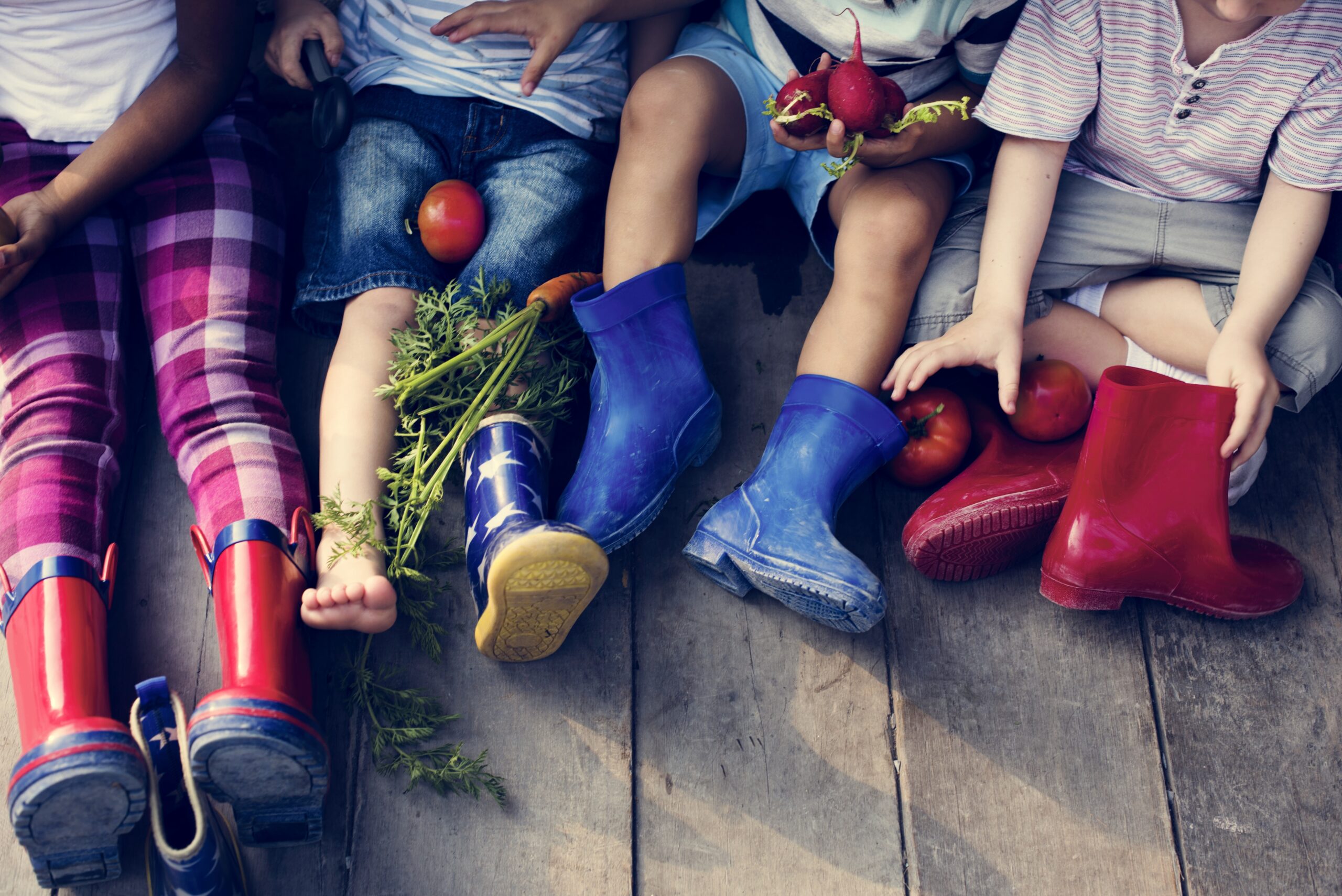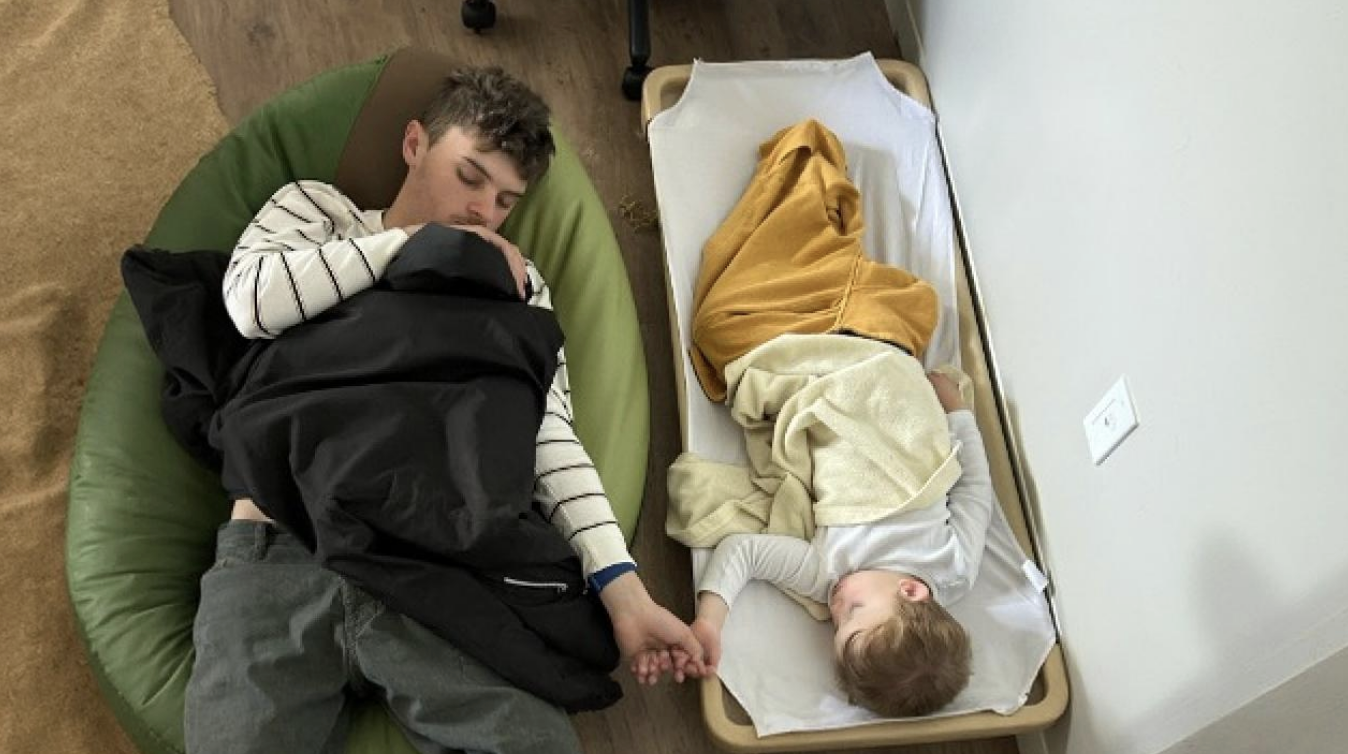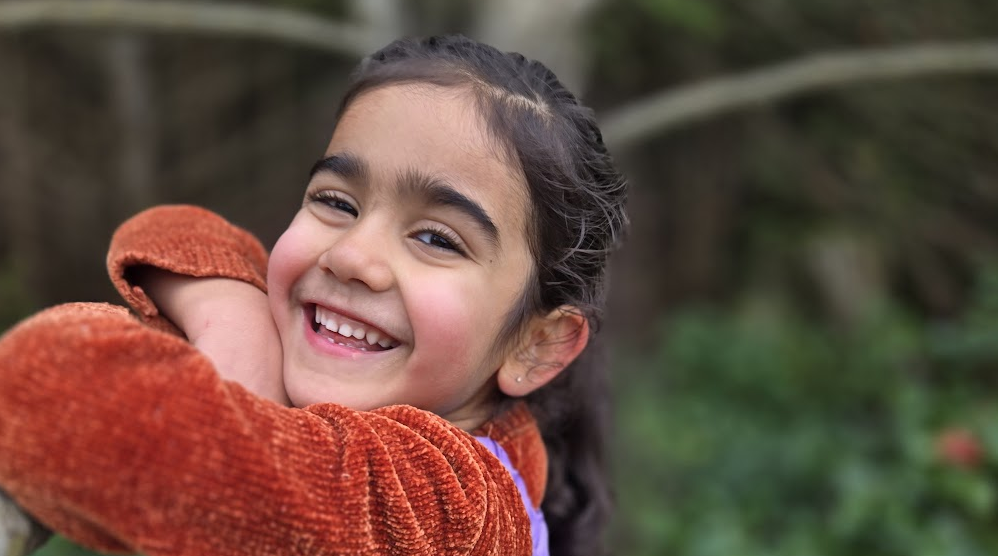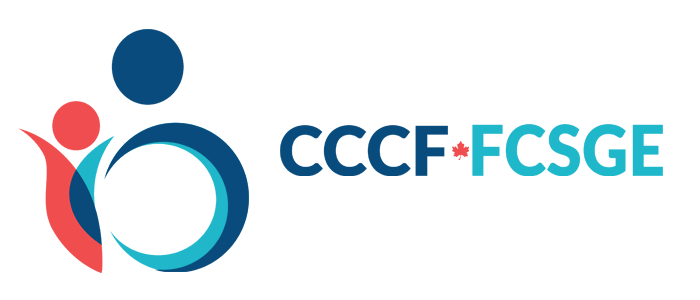By Angelique Davies, RECE, M.Ed
“I think there are things we can all do to build resilience in ourselves, but also to build resilience in each other.” ~ Sheryl Sandberg, Chief Operating Officer of Facebook
Each component of a curriculum tells a story – about analysis, research, design, building process and evaluation. These stories are academic, and professional, but also deeply personal. They tell us: Why was this curriculum built? By whom? Why is it important? How is it beneficial? In January 2022 Mothercraft College of Early Childhood Education launched the pilot of a new training certificate for ECEs in Ontario: Building Resilience with Infants and Young Children: Enhancing ECE Knowledge and Practice Related to Trauma, Stress and Mental Health. I am part of the project team that built this trauma-informed curriculum. This story is about our determination to build the resilience of infants, young children and ECEs.
The Foundation: Building a Curriculum
First, the need was identified for training that focuses on supporting infants and young children who have experienced trauma. Building Resilience emerged from a growing recognition that trauma – caused by pandemics, accidents, maltreatment, abuse, poverty, racism, illness, intergenerational trauma, war, community violence and relational trauma – impacts child development in many ways. Early exposure to toxic stress can alter brain development and have long term consequences for learning, well-being and health (Boullier, M., & Blair, M., 2018; Carsley, S. and Oei, T., 2020). Therefore, it is essential to leverage the significant role of Early Childhood Educators in the social, emotional and cognitive development of young children. Given their work in so many early learning settings, ECEs are in a unique position to buffer the impact of trauma, through providing safe environments, corrective emotional experiences, and care that is consistent in attunement and security (Bartlett, J. D., & Smith, S. 2019).
We researched resources that would enable educators to utilize a trauma-informed lens; apply deeper knowledge of such topics as brain development, attachment, stress and regulation; recognize the impact of Anti-Black racism and multi-generational trauma; work more effectively with children and families affected by trauma; and practice self-care. We developed a program design and a framework rooted in adult education principles for delivering the training. And, importantly, an evaluation plan was created, to collect feedback, and understand how trauma-informed training increases the ability of ECEs to identify, attune and connect to children, and buffer the impact of adverse experiences (Loomis and Felt, 2021). Many people were involved in the development of the curriculum – experts and advisors from across the country, content writers, editors and graphic designers, and colleagues who have contributed to this important work and promoted it with ECEs. Early Childhood Educators are the true stars. Their dedication, hard work, personal and professional reflection, and feedback inspires us to ensure the content of the training is relevant and helpful in their daily practice.
We have found that Early Childhood Educators need, and want, to be better prepared to understand how the effects of the pandemic and other traumatic events can affect a child’s development and brain architecture (Hobbs, C., Paulsen, D., & Thomas, J., 2019; Khodarahmi, N., 2019; Sciaraffa, M.A., Zeanah, P.D., & Zeanah, C.H., 2018). Pre-service training does not typically include subjects like trauma, stress and mental health, or focus on strategies that might help us respond to dysregulated behaviour caused by trauma. Increasingly, the need for trauma-informed training is being recognized (Browne-Kealey, 2019), and for training that supports the well-being of educators (Imad, 2021). Mothercraft College of Early Childhood Education has long emphasized the role of relationships in promoting mental health, through its innovative programs for educators, and for children and families. When Mothercraft received funding to meet the challenge of developing and delivering a national training certificate on trauma-informed practice, we set out to build knowledge, confidence and competence of ECEs, so, in turn, they could build resilience among the infants and young children in their care.
The Framework: Voices of the Project Team
Stories from members of the Building Resilience team come from multi-disciplinary fields including social work, psychology, psychiatry, mental health, child development and early childhood education. Below are the voices of Michele Lupa, Brenda Packard, Mary Rella, Lani Sunday, Diane Daley, Laura McDonough and myself. We hope that our shared learning through this project makes a difference in the lives of children and ECEs.
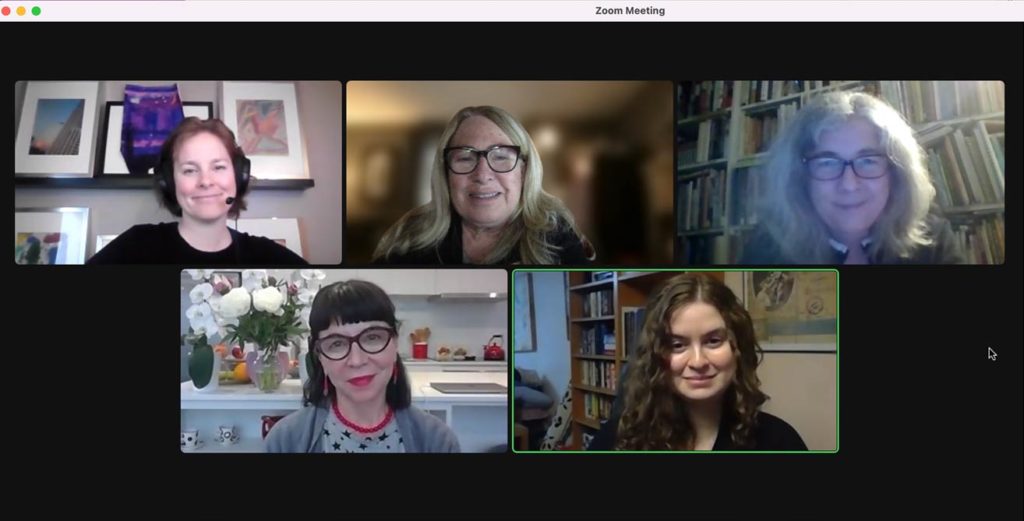
What inspired the creation of this trauma-informed curriculum?
“In the summer of 2020, when Mothercraft was asked to think about ways to help families with young children deal with the impact of COVID-19, it resonated deeply. We knew that the effect of the pandemic on children’s social-emotional development was very concerning. We also knew that the longer the shutdowns and isolation continued, the deeper those effects would be. Given Mothercraft’s 90-year history delivering post-secondary education and training programs to ECEs, as well as our decades-long experience operating child care centres and clinical infant/early childhood mental health programs, I immediately understood this was an opportunity we had to seize. This project utilizes knowledge ECEs already have and offers them new tools to use in their daily practice to mitigate the impact of trauma and stress for children. It elevates the significant role ECEs already play in building children’s resilience. Providing these dedicated professionals with new knowledge, hand-on strategies and practical techniques not only strengthens their important role as educators, teachers and essential service providers but also ensure children are able to thrive despite a global crisis. We are proud to have played a part in achieving that objective.” (Michele Lupa, Executive Director, Canadian Mothercraft Society)
What does it mean to be trauma-informed?
“Through my social work education, I learned that no one can make you feel the way you do – it’s a complicated interaction of your genetics, environment and temperament. Years of working in Child Welfare showed me the importance of being trauma-informed, and the impact of trauma on both children and parents. If parents experience trauma as children, this affects their own development and their ability to parent their own children. A trauma-informed lens helped me to understand that how children respond to triggers in their environment is directly related to the trauma they have suffered. Behaviour is not simply behaviour, but a complicated reaction based on many things caused by trauma. This knowledge is important for anyone working with children. To be more effective in working with children and families, we must focus on what happened to them, not what is “wrong” with them. Then we can enhance their coping capacity and help them deal more effectively with their trauma.” (Brenda Packard, Course Instructor, Mothercraft College of ECE and Seneca College, Infant & Early Child Mental Health)
How can ECEs support the development of attachment relationships?
The process of building resilience is learning through relationships what to do when faced with a problem. Distress for infants and young children is often experienced as a problem they can’t resolve on their own. If a caregiver responds in an attuned and contingent way when a child is distressed, their co-regulating behaviours bridge that child back to a place of calm. The child learns that with support, messy interactions can turn to repaired interactions which can lead to feeling calm again. Through this process, what is learned in relationship, is that problems can be solved without getting overwhelmed by them. For an infant and young child, an experience of trauma can occur when parents are not able to buffer the stress. In some instances, parents add to the stress through abuse and neglect. We don’t judge caregiving behaviours. Parenting comes about in a very complicated and multi layered way. In an ECE environment, educators can begin to understand how a child’s learned behaviours for dealing with stress may be trauma responses (e.g., over reacting or under reacting in their ability to problem-solve, poor co-operation, inability to self-soothe and accept co-regulation, or join in play). When ECEs provide safe environments where children can play and form trusting relationships, the experience can be very healing for their emotional and cognitive development, and offer corrective secure relationship experiences. (Mary Rella, Director of Education, Training and Data, Mothercraft College of ECE)
Can you describe creating the module about trauma and the Indigenous lens?
“It was a blend of mixed emotions creating the Indigenous module on trauma-informed practices. I met and collaborated virtually with two Indigenous early learning experts [Maya-Rose Simon and Cathy Balatti] across the country, who I now call friends. We shared our stories of intergenerational trauma while working through personal triggers within the module, amidst the recovery of residential school victims across Canada. We choked back tears, we supported each other, we laughed, and we established a life-long connection. It is my hope that RECEs are aware of Indigenous issues and know that Indigenous families are still here. We are resilient, and thriving. Please take the time to honour, celebrate and learn from Indigenous children within your classrooms.” (Lani Sunday, Program Manager, Ahkwesahsne Child Care Program)
Why is learning about Anti-Black Racism so essential?
“As a Black leader and CEO, the opportunity to participate [in collaboration with Nicole Cummings-Morgan, Stephanie Jones, Carolee Crooks and Carlene Nembhard] in the development of an Anti-Black Racism training module for educators meant a lot to me, both personally and professionally. As educators, we have an obligation to positively inform a child’s life trajectory and early learning experiences, while also supporting the family’s overall well-being. This training facilitates the opportunity for deeper conversations and awareness of how racism and trauma are interconnected. Racism is trauma. Educators can do better when they understand the impact of racism.” (Diane Daley, CEO of Family Day Care Services)
Why should ECEs participate in evaluating projects like Building Resilience?
“Program evaluation helps us answer questions about what works for whom, and in what context. As a pilot, it’s important to document the program model and learnings from implementation that can be applied to scaling up efforts, that ultimately improve the program for all participants. We use a variety of methods to mine these learnings, both quantitative and qualitative, knowing that the numbers we collect only have meaning when paired with the experiences of the participants. Through the evaluation, the pilot participants will not only have acquired new knowledge for themselves, but also contributed to the impact the program will have on future participants across Canada.” (Laura McDonough, Program Evaluator)
What has been challenging about developing a trauma-informed curriculum?
“Remembering. The work required of this project has triggered some childhood memories of relational trauma. And I have been haunted by the faces of children I once taught – one who screamed daily, exhausted from nightly enrichment classes; one grieving for a dying parent; one role-playing an experience of maltreatment; one pulled in two directions by a bitter divorce. Their pain really resonated with my own. Unfortunately, back then I knew nothing about being trauma-informed. Had I known, I might have responded better to their needs, and to my own. I can’t re-write the past, but what I’ve learned through this project has allowed me to transform my experiences into knowledge that might help other ECEs respond to and buffer children’s trauma, today. Together, maybe we can help children to write their own futures – inspired by healing, and filled with hope.” (Angelique Davies, Project Manager, Mothercraft College of ECE)
” I think there are things we can all do build resilience in ourselves, but also to build resilience in each other”
Sheryl Sandberg, Chief Operating Officer of Facebook
Final Thoughts: Voices of ECEs
Through Building Resilience, ECEs received ten on-line learning modules, completed surveys and quizzes, and engaged in reflective practice. While some materials seemed familiar, others were new. Educators were invited to connect, and share learnings and work experiences. These participant stories reinforce the important role of early childhood educators in children’s lives.
“I enjoy learning about children’s mental health and what poses risks to developing mental health issues – how brain development is influenced by stress and trauma at a young age… strategies and possible preventions I can use. I find it heartbreaking at times, but also encouraging that our relationship with a child can make a lot of difference. This knowledge can help educators to build attachments and realize just how influential the first few years of development are. I think educators would feel more comfortable and confident knowing that they are doing the best they can, that children are doing the best they can. No more judgment and labelling a child as “difficult” or a teacher as “incapable”. Understanding that you are there to be the child’s safe place, and partner, and always asking the child – how can I help?” (Building Resilience Participant)
“My practice has been stimulated with new ideas about how to respond more effectively to challenges in the educational environment. Expanding the focus of these learnings will help me to promote healthy child development in ways matched to the diverse needs of today’s society. This is a continuously changing world, especially in the child care field. Many sectors are involved, including science, politics and culture. The challenges families and individuals living in less fortunate areas face – poverty, abuse and neglect – are a scream for change and drastic renewal of policies and procedures. The need for shared leadership is urgent.” (Building Resilience Participant)
“I have been reminded that our relationships with children are the foundation on which all their learning rests. Educators need to make sure that we build warm relationships through meaningful interactions – spend time, play and talk without agenda, listen carefully and respond to each child’s invitation. Early childhood educators need to be able to spend more time WITH children. We will be happier teachers, and have happier and more resilient children if we can accomplish this.” (Building Resilience Participant)
References
Bartlett, J. D., & Smith, S. (2019). The role of early care and education in addressing early childhood trauma. American journal of community psychology, 64(3-4), 359-372.
Boullier, M., & Blair, M. (2018). Adverse childhood experiences. Paediatrics and Child Health, 28 (3), 132-137.
Browne-Kealey, S. (2019). Exploring teachers’ perspectives on trauma-informed education (Doctoral dissertation, Nipissing University, Faculty of Education).
Hobbs, C., Paulsen, D., & Thomas, J. (2019). Trauma-Informed Practice for Pre-service Teachers. Oxford Research Encyclopedia of Education. Retrieved 7 Mar. 2022, from https://oxfordre.com/education/view/10.1093/acrefore/9780190264093.001.0001/acrefore-9780190264093-e-1435.
Imad, M. (2021). Transcending adversity: Trauma-informed educational development. To Improve the Academy: A Journal of Educational Development, 39(3).
Khodarahmi, N. (2019). Educators of young children and knowledge of trauma-informed practice (Doctoral dissertation, University of British Columbia).
Loomis, A. M., & Felt, F. (2021). Knowledge, skills, and self-reflection: Linking trauma training content to trauma-informed attitudes and stress in preschool teachers and staff. School mental health, 13(1), 101-113.
Ontario Agency for Health Protection and Promotion (Public Health Ontario). Carsley S, Oei T. Interventions to prevent and mitigate the impact of adverse childhood experiences (ACEs) in Canada: a literature review. Toronto, ON: Queen’s Printer for Ontario; 2020.
Sciaraffa, M. A., Zeanah, P. D., & Zeanah, C. H. (2018). Understanding and promoting resilience in the context of adverse childhood experiences. Early childhood education journal, 46(3), 343-353.


